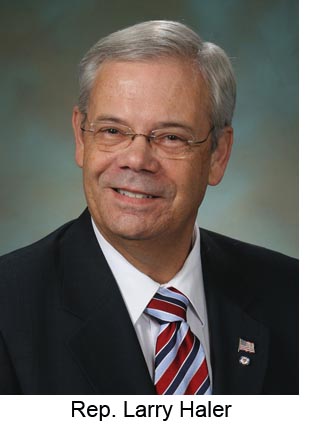Burn Down the Mission

Our new favorite Republican here at the blog is Larry Haler. Representative Haler hails from Richland and has been sent to Olympia by the fine people in Washington’s 8th legislative district.
He also seems to be one of the few legislators who really gets it about the destruction of our state universities.
Representative Haler is a member of the House Higher Education Committee, and he has recently made a point of regularly reminding his colleagues that state appropriations to 4-year higher education were cut 26% last year and that Washington ranks 48th in the nation in both 4-year university participation and 4-year university funding per student. He understands that the additional $46 million in cuts in Governor Gregoire’s supplemental budget proposal will devastate our universities, making them significantly smaller and exponentially more private.
Representative Haler’s insight was again on display last week as the House Higher Ed committee heard testimony on House Bill 2655 (pdf). HB 2655 is the brainchild of the Higher Education Coordinating Board and it is being peddled by members of the HEC Board as the product of last summer’s System Design Study.
Faithful readers of the blog will recall that the System Design Study was assigned to the HEC Board after last year’s grueling legislative session. It was supposed to put an end to the perennial parade of pork bills calling for the state to build a brand spanking new university in Everett or Marysville or various other places with ambitious legislators. In the wake of last year’s budget free fall, the legislature asked the HEC Board to come up with a coherent and methodical plan for expanding higher education that would be responsive to state goals and needs rather than political arm wrestling.
The result, of course, was that the political hurly burly moved to the HEC Board. The System Design Committee meetings revealed and crystallized a variety of tensions, especially those between the community colleges and the state universities. A repressed, confrontation-averse academic food fight ensued. But, under the steady hand of HEC Board Executive Director Ann Daley, the committee eventually produced a relatively sane report. Check it out here (pdf). The report calls for expansion upon proven demand, it pays attention to all sectors of higher ed (research universities, regional comprehensives, branch campuses, university centers, community and technical colleges), and it highlights the needs of underrepresented students. From the totally objective point of view of us here at the blog, the report is still biased toward community and technical colleges (let’s face it, those folks are just better organized and more persistent than we are), but overall it’s a decent and useful report.
Unfortunately, something seems to have happened on the way to the capitol. HB 2655 calls itself “An act relating to expanding the higher education system upon proven demand” and purports to represent the System Design Plan, but it might more accurately be called “An Act to Try to Produce More Baccalaureate Degrees Without Actually Paying For Them By Allowing Community Colleges to Run Amuck.” Despite the fact that the System Design Report included all sectors of higher education, HB2655 focuses almost exclusively on 2-year colleges. It specifically removes a statutory prohibition on community colleges becoming 4-year liberal arts colleges and provides a road map for “mission change.”
Turning a community college or two into a four-year school is not, theoretically, a bad idea, but such transformation should be pursued only after our current state universities have been adequately funded. Representative Haler understood this when he called HB 2655 “the wrong bill at the wrong time,” and went on to remind his colleagues that Washington ranks 48th in the nation in funding for our state universities.
Perhaps the most telling moment in the hearing came when Representative Scott White (probably the most engaged, intelligent, and passionate supporter of state universities in the legislature) questioned Bellevue Community College President Jean Floten about the tension between the resources required to offer legitimate 4-year degrees and the claims that community colleges are more cost effective at producing bachelors degrees. With the pride in exploitation that only a boss can bring, President Floten announced that the applied baccalaureates at Bellevue were getting most of their momentum from faculty who were “volunteering” their time.
There you have it folks: the grand plan for producing more bachelors degrees in Washington State is to make faculty work for free.